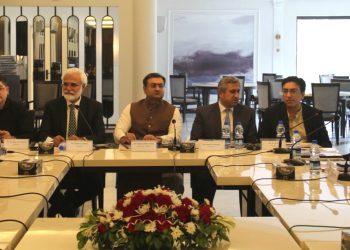By Naveed Siddiqui
ISLAMABAD: Foreign Office spokesperson, Mumtaz Zahra Baloch, expressed “deep concerns” about the Tehreek-e-Taliban Pakistan (TTP) possessing modern sophisticated weapons. She emphasized the necessity of “collaborative action” by the international community to neutralize the threat emanating from Afghanistan.
In a weekly media briefing, Baloch stated, “The threat that it poses requires collaborative action by the international community and collaborative strategies to neutralize this threat. We will continue to work towards this end.”
When asked about seeking U.S. drone support against TTP sanctuaries in Afghanistan, Baloch did not specifically respond but mentioned ongoing talks with various countries to enhance Pakistan’s capacity to combat terrorism. She emphasized Pakistan’s commitment to working with Afghan neighbors for peace and stability in the region.
Addressing concerns about Chief of Army Staff’s visit to the U.S., Baloch highlighted discussions on security and defense cooperation between the two countries.
Responding to questions about Indian involvement in supporting terrorism in Pakistan, Baloch expressed concerns and hinted at sharing more details with the media based on substantive evidence.
Regarding the reported invitation from the Taliban interim regime to JUI-F chief Maulana Fazlur Rehman, Baloch declined to comment, suggesting the question be directed to Afghan authorities. She also expressed uncertainty about reported arrests of TTP members by the Afghan interim government.
On talks with TTP, Baloch clarified that there were no ongoing discussions between Pakistan and TTP. Instead, the focus was on actions by Afghan authorities against TTP elements to eliminate the terror threat to Pakistan from Afghan soil.
Regarding Indian media reports about Dawood Ibrahim, Baloch dismissed them as part of India’s “habitual” propaganda campaign against Pakistan, citing credible evidence of India engaging in false news.
Addressing the USCIRF’s recent report on the use of blasphemy laws in Pakistan, Baloch criticized it as based on “faulty assumptions” and “unsubstantiated allegations,” asserting Pakistan’s commitment to preventing misuse of blasphemy laws and safeguarding citizens’ rights.
As a pluralistic society, she added, “Pakistan is fully determined to protect and advance the constitutionally guaranteed human rights of all its citizens and foster interfaith harmony.”


















